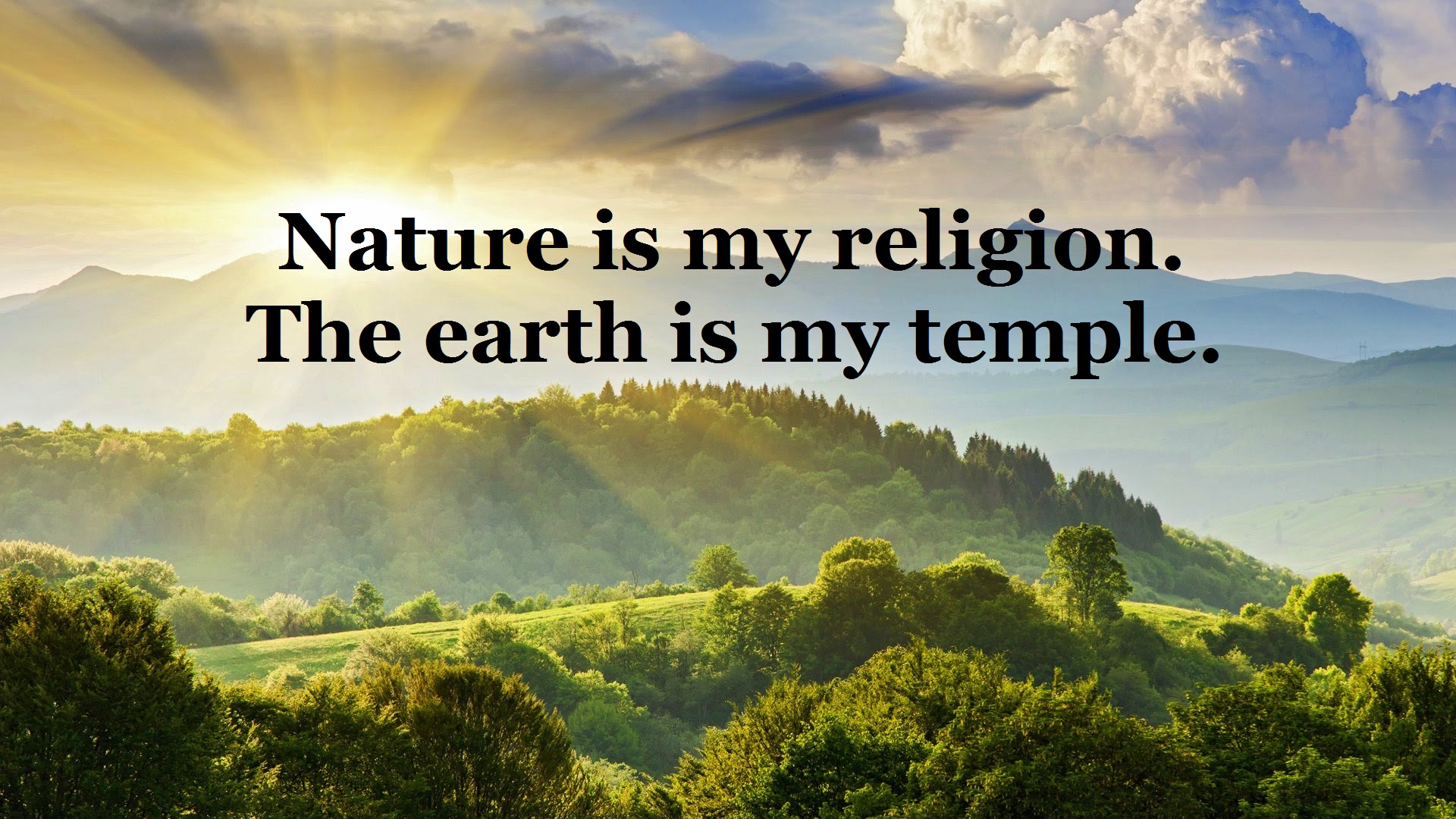
'We are an integral part of Nature, which we cherish, revere and preserve in all its magnificent beauty and diversity. We strive to live in harmony with Nature locally and globally. We acknowledge the inherent value of all life, human and non-human, and treat all living beings with compassion and respect.'-Photo:bing.com
'In the absence of the sacred, nothing is sacred. Everything is for sale.' - Oren R. Lyons, Faithkeeper of the Turtle clan
I offer this in honour of Our Journey of Hope, celebrating and honouring the beauty and wisdom of Our Sacred Earth, our Mother Nature, our wisest teachers
Our Journey of Hope, Our Forum in Lucca, Tuscany, September 2018
Our Journey of Hope
Imagining and Taking Action to Build a Better World
…And Being Transformed by Nature
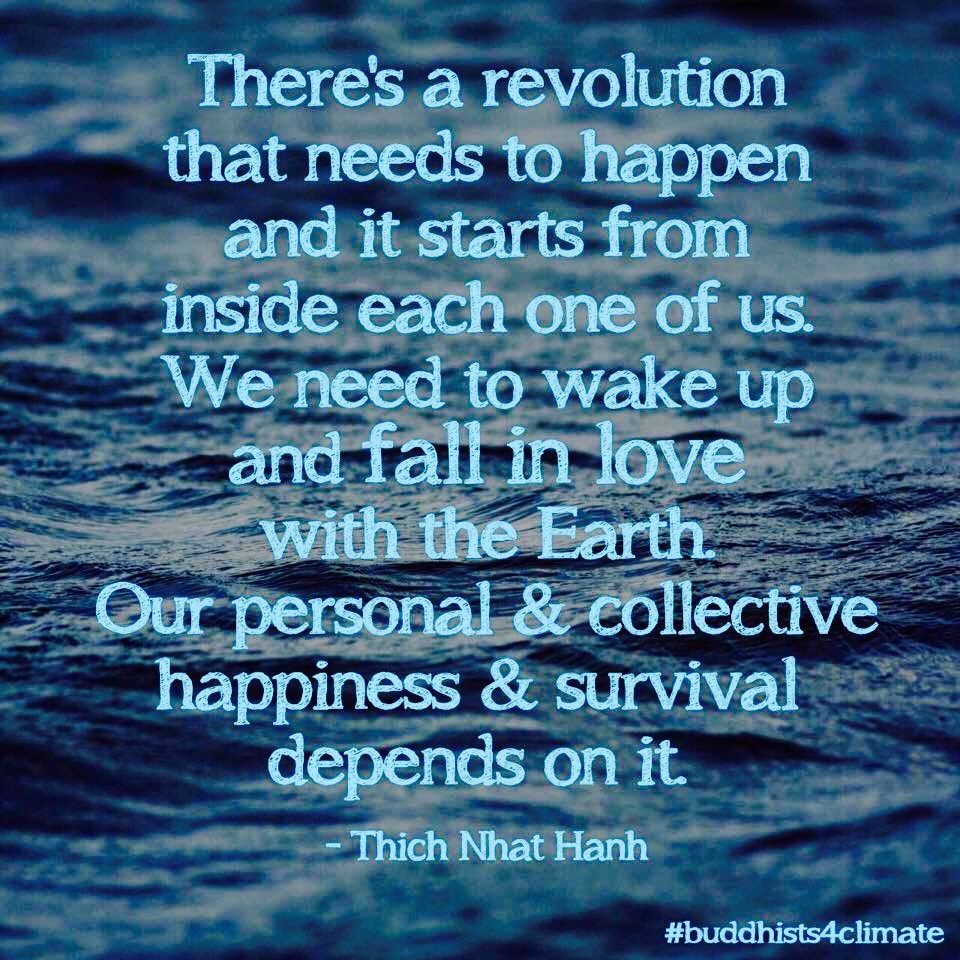
Our Journey of Hope is about many things. It is about challenging the norm. It is about volunteerism and service. It is about serving our communities, our world, and caring for our planet, our home. It is about finding out more about ourselves than we ever imagined possible. It is about having a dream. It is about a mission and our vocation in life. It is about believing in our journey and stories. It is about hope.
It is about building a better world, a world of wisdom and beauty, peace and justice, fairness and kindness, caring for our Sacred Earth and Mother Nature. It is about marching together, taking action in the interest of the common good, to design and construct the better world, we are all yearning for.
What Happens When We Reconnect with Nature*
Research is discovering all the different ways that nature benefits our well-being, health, and relationships.
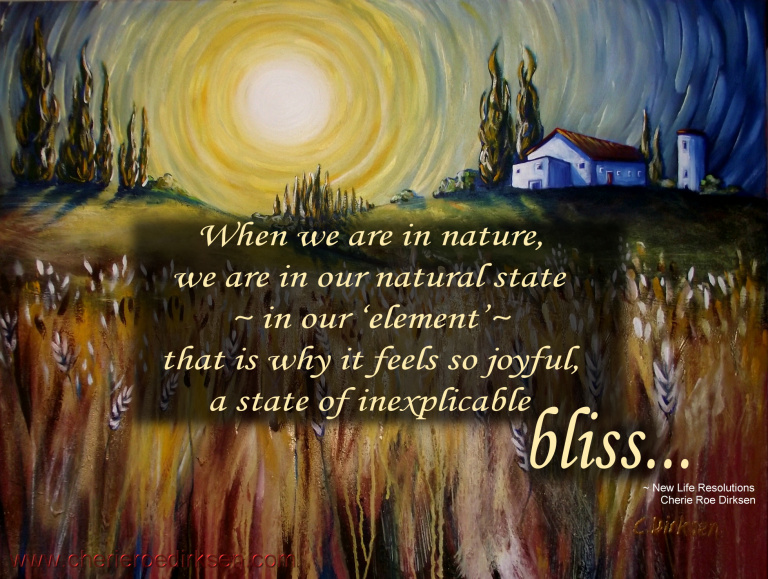
Photo:cherieroedirksen.com
"Humans have long intuited that being in nature is good for the mind and body. From indigenous adolescents completing rites of passage in the wild, to modern East Asian cultures taking “forest baths,” many have looked to nature as a place for healing and personal growth.
Why nature? No one knows for sure; but one hypothesis derived from evolutionary biologist E. O. Wilson’s “biophilia” theory suggests that there are evolutionary reasons people seek out nature experiences. We may have preferences to be in beautiful, natural spaces because they are resource-rich environments—ones that provide optimal food, shelter, and comfort. These evolutionary needs may explain why children are drawn to natural environments and why we prefer nature to be part of our architecture.
Now, a large body of research is documenting the positive impacts of nature on human flourishing—our social, psychological, and emotional life. Over 100 studies have shown that being in nature, living near nature, or even viewing nature in paintings and videos can have positive impacts on our brains, bodies, feelings, thought processes, and social interactions. In particular, viewing nature seems to be inherently rewarding, producing a cascade of position emotions and calming our nervous systems. These in turn help us to cultivate greater openness, creativity, connection, generosity, and resilience.
In other words, science suggests we may seek out nature not only for our physical survival, but because it’s good for our social and personal well-being.
How nature helps us feel good and do good
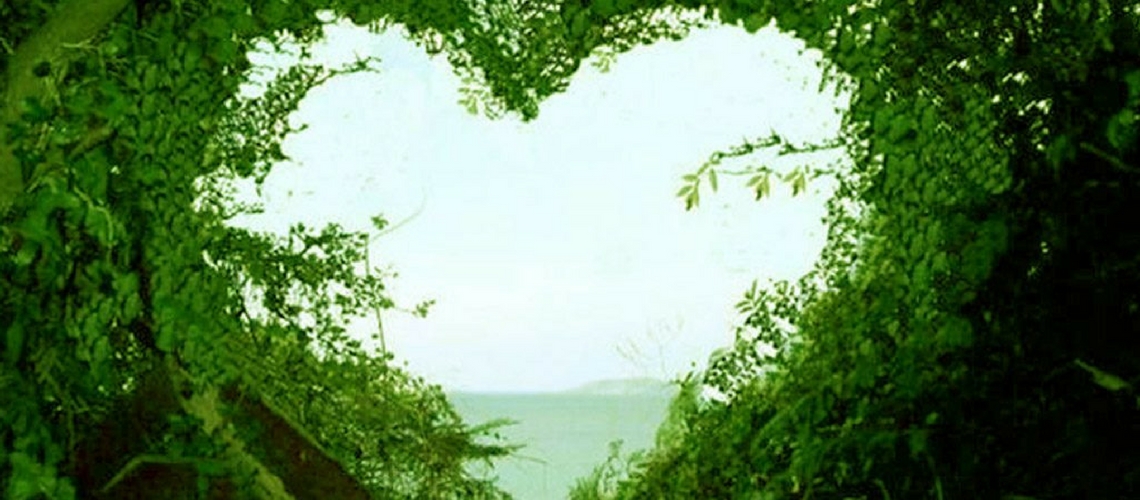
Photo:bing.com
The naturalist John Muir once wrote about the Sierra Nevada Mountains of California: “We are now in the mountains and they are in us, kindling enthusiasm, making every nerve quiver, filling every pore and cell of us.” Clearly, he found nature’s awe-inspiring imagery a positive, emotive experience.
But what does the science say? Several studies have looked at how viewing awe-inspiring nature imagery in photos and videos impacts emotions and behavior. For example, in one study participants either viewed a few minutes of the inspiring documentary Planet Earth, a neutral video from a news program, or funny footage from Walk on the Wild Side. Watching a few minutes of Planet Earth led people to feel 46 percent more awe and 31 percent more gratitude than those in the other groups. This study and others like it tell us that even brief nature videos are a powerful way to feel awe, wonder, gratitude, and reverence—all positive emotions known to lead to increased well-being and physical health.
Positive emotions have beneficial effects upon social processes, too—like increasing trust, cooperation, and closeness with others. Since viewing nature appears to trigger positive emotions, it follows that nature likely has favorable effects on our social well-being.
This has been robustly confirmed in research on the benefits of living near green spaces. Most notably, the work of Frances Kuo and her colleagues finds that in poorer neighborhoods of Chicago people who live near green spaces—lawns, parks, trees—show reductions in ADHD symptoms and greater calm, as well as a stronger sense of connection to neighbors, more civility, and less violence in their neighborhoods. A later analysis confirmed that green spaces tend to have less crime.
Viewing nature in images and videos seems to shift our sense of self, diminishing the boundaries between self and others, which has implications for social interactions. In one study, participants who spent a minute looking up into a beautiful stand of eucalyptus trees reported feeling less entitled and self-important. Even simply viewing Planet Earth for five minutes led participants to report a greater sense that their concerns were insignificant and that they themselves were part of something larger compared with groups who had watched neutral or funny clips.
Several studies have also found that viewing nature in images or videos leads to greater “prosocial” tendencies—generosity, cooperation, and kindness. One illustrative study found that people who simply viewed 10 slides of really beautiful nature (as opposed to less beautiful nature) gave more money to a stranger in an economic game widely used to measure trust.
All of these findings raise the intriguing possibility that, by increasing positive emotions, experiencing nature even in brief doses leads to more kind and altruistic behavior.
How nature helps our health
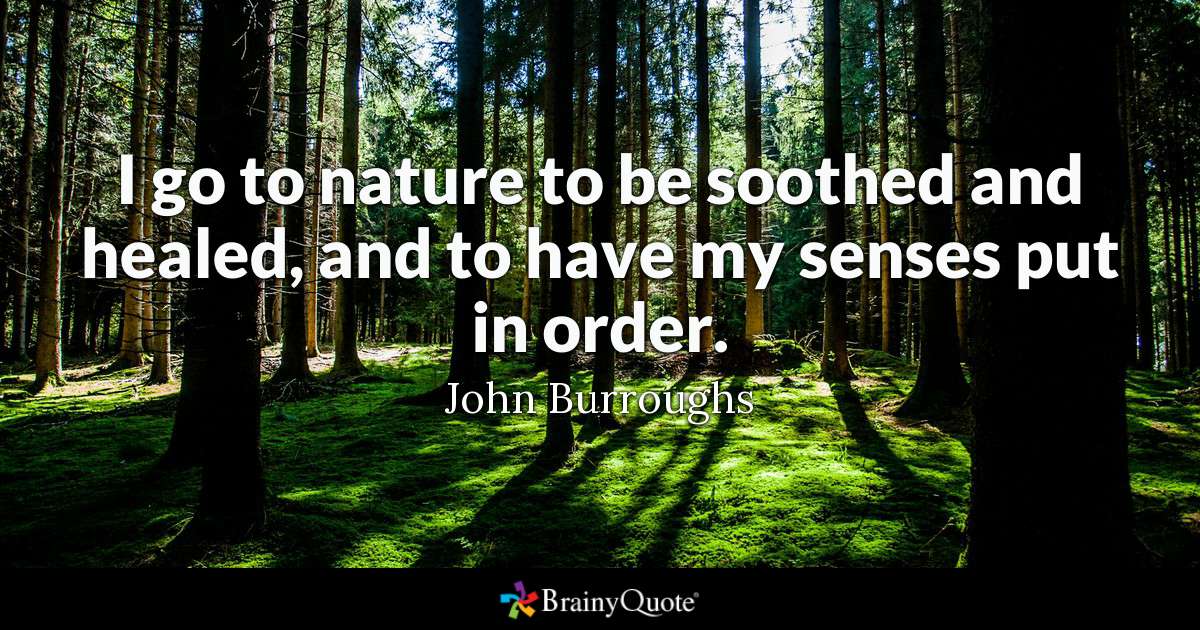
Besides boosting happiness, positive emotion, and kindness, exposure to nature may also have physical and mental health benefits.
The benefits of nature on health and well-being have been well-documented in different European and Asian cultures. While Kuo’s evidence suggests a particular benefit for those from nature-deprived communities in the United States, the health and wellness benefits of immersion in nature seem to generalize across all different class and ethnic backgrounds.
Why is nature so healing? One possibility is that having access to nature—either by living near it or viewing it—reduces stress. In a study by Catharine Ward Thompson and her colleagues, the people who lived near larger areas of green space reported less stress and showed greater declines in cortisol levels over the course of the day.
In another study, participants who viewed a one-minute video of awesome nature rather than a video that made them feel happy reported feeling as though they had enough time “to get things done” and did not feel that “their lives were slipping away.” And studies have found that people who report feeling a good deal of awe and wonder and an awareness of the natural beauty around them actually show lower levels of a biomarker (IL-6) that could lead to a decreased likelihood of cardiovascular disease, depression, and autoimmune disease.
Though the research is less well-documented in this area than in some others, the results to date are promising. One early study by Roger Ulrich found that patients recovered faster from cardiovascular surgery when they had a view of nature out of a window, for example.
A more recent review of studies looking at different kinds of nature immersion—natural landscapes during a walk, views from a window, pictures and videos, and flora and fauna around residential or work environments—showed that nature experiences led to reduced stress, easier recovery from illness, better physical well-being in elderly people, and behavioral changes that improve mood and general well-being.
Why we need nature
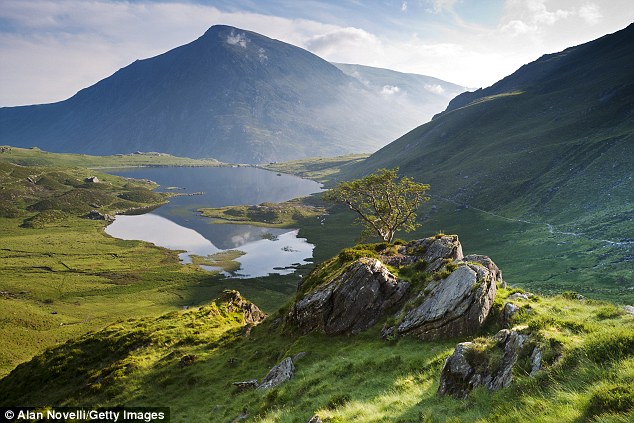
All of these findings converge on one conclusion: Being close to nature or viewing nature improves our well-being. The question still remains…how?
There is no question that being in nature—or even viewing nature pictures—reduces the physiological symptoms of stress in our bodies. What this means is that we are less likely to be anxious and fearful in nature, and thereby we can be more open to other people and to creative patterns of thought.
Also, nature often induces awe, wonder, and reverence, all emotions known to have a variety of benefits, promoting everything from well-being and altruism to humility to health.
There is also some evidence that exposure to nature impacts the brain. Viewing natural beauty (in the form of landscape paintings and video, at least) activates specific reward circuits in the brain associated with dopamine release that give us a sense of purpose, joy, and energy to pursue our goals.
But, regrettably, people seem to be spending less time outdoors and less time immersed in nature than before. It is also clear that, in the past 30 years, people’s levels of stress and sense of “busyness” have risen dramatically. These converging forces have led environmental writer Richard Louv to coin the term “nature deficit disorder”—a form of suffering that comes from a sense of disconnection from nature and its powers.
Perhaps we should take note and try a course corrective. The 19th century philosopher Ralph Waldo Emerson once wrote about nature, “There I feel that nothing can befall me in life—no disgrace, no calamity (leaving me my eyes), which nature cannot repair.” The science speaks to Emerson’s intuition. It’s time to realize nature is more than just a material resource. It’s also a pathway to human health and happiness."
*This article written by Kristophe Green and Dacher Keltner was first published in the Greater Good Magazine on March 1, 2017
Why we all need a good dose of vitamin N?
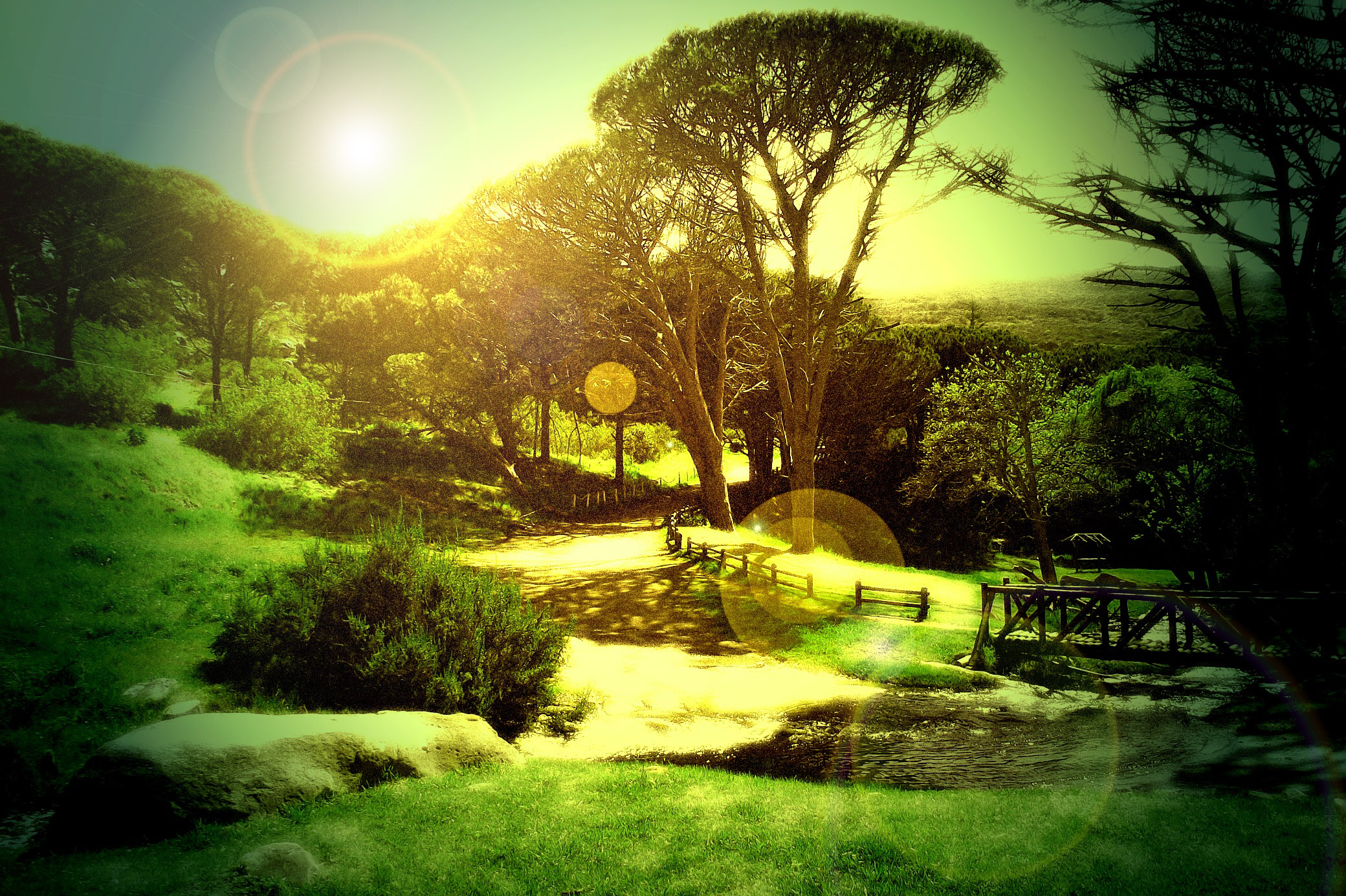
Photo:cherieroedirksen.com
Modern life doesn’t exactly lend itself to immersion in nature, and this has big implications for our physical and mental health.
I offer you the following, packed with a lot of good and nourishing vitamin N:
BBC: How nature is good for our health and happiness
NATURA SOPHIA: The Wisdom of Nature
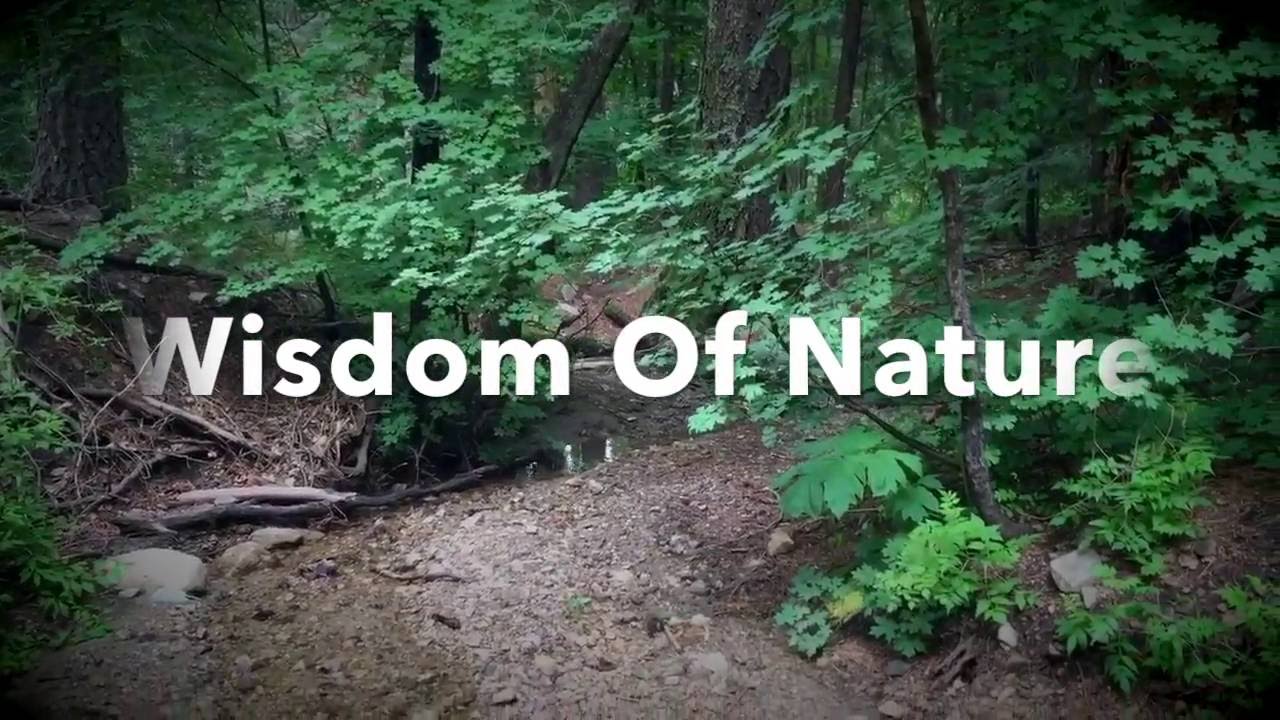
Photo:i.ytimg.com
'We are always being told that nature is good for us – and that we should spend more time in its company for the sake of our health. What is less well flagged up is that nature is as important to us as a source of nourishment for our souls. Nature is a kind of book, and when we open our eyes to it, find its pages filled with distinctive lessons about wisdom and serenity. In a set of alpine flowers growing on a hillside, we can read a defence of the value and beauty of the everyday; an evening sky can lend legitimacy and dignity to our melancholy states; there are invitations to calm in the unhurried motions of a Friesian cow; the sight of the distant stars can settle our anxieties by evoking our insignificance in the wider scheme. This set of essays highlights some of the most psychologically nourishing landscapes, flora and fauna of the planet. It functions as a reminder of all the consolation and redemption available to us in the natural world'...Continue to read
Do you wish to be successful, content, in peace, resilient, efficient, happy and sustainable? If so, you are in a good place.
Let yourself be inspired and guided by nature. Here’s how:
And finally, please ensure that our children and the youth get their daily dose of vitamin N too:
Nature the Best Teacher: Re-Connecting the World’s Children with Nature
Related readings:
In this troubled world let the beauty of nature and simple life be our greatest teachers
Desperately seeking Sophia: The Wisdom of Nature
Mother Nature Crying: Fools and Heartless those who do not see the tears
In Search of Well-being, Joy and Happiness: ‘Nature and ‘Forest Bathing’ is the Path
People's Manifesto for Wildlife
... And Lest they forget!
To all those values-free, greedy demagogues, intent to destroy the Mother Earth, so that like a thief, they too, can make loads of easy money for a short while, I say to them: Wisen up and mend your ways, don't be such a stupid fools; You can not breath and eat money!!

Photo: i.pinimg.com
Yes. They are such a fool!!
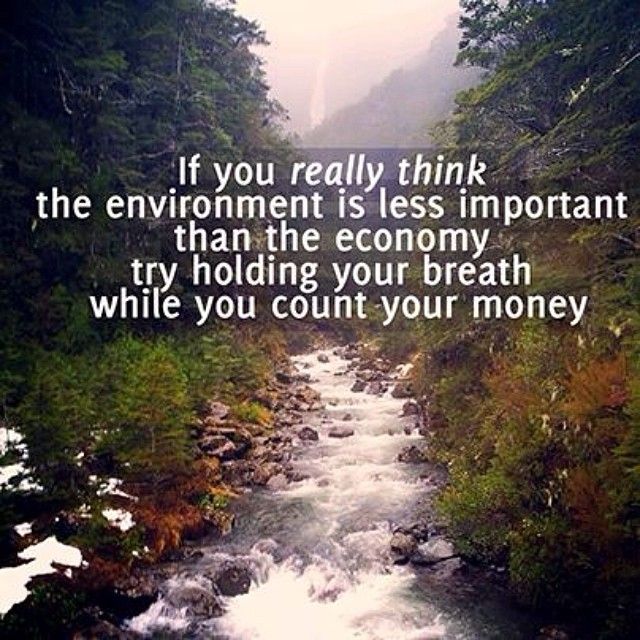
Photo: i.pinimg.com
